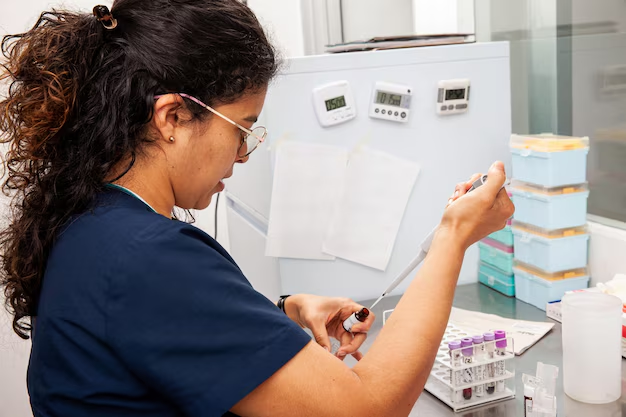Could You Experience Shingles More Than Once? Here’s What You Need to Know
Imagine this: you've endured the pain of shingles once and thought you’d never have to face it again. But is it possible to have shingles more than once? This question has piqued the curiosity—and concern—of many. In this article, we’ll dig deep into what shingles is, explore if it can recur, and provide actionable insights and considerations.
Understanding Shingles: The Basics
What Exactly is Shingles?
Shingles, also known as herpes zoster, is a painful rash caused by the varicella-zoster virus, the same virus responsible for chickenpox. Once you've had chickenpox, the virus doesn't entirely leave your body. Instead, it lies dormant in your nerve tissues and can reactivate later in life, typically as shingles.
How Does Shingles Manifest?
The most recognizable symptom of shingles is a painful rash, often appearing on one side of your body. Before the rash appears, some may experience:
- Nerve pain
- Tingling or itching in the affected area
- Fever or headache
Within a few days, blisters may emerge, eventually crusting over. The whole episode can last anywhere from 2 to 4 weeks, leaving most who experience it with lingering pain known as postherpetic neuralgia (PHN).
Can Shingles Strike Twice?
Unraveling the Mystery: Recurrence of Shingles
The question at hand: Can you have shingles more than once? The answer is yes, though it's relatively rare. The likelihood of experiencing shingles again depends on several factors:
Risk Factors for Recurrence
- Age: Older adults are more susceptible to recurring shingles due to weakened immune systems.
- Immune System Status: Conditions that weaken the immune system, such as HIV or cancer treatments, can increase the likelihood.
- Initial Severity: A severe first episode may somewhat increase recurrence risk.
Statistics and Research
Research suggests that about 1 in 3 people will have shingles during their lifetime, and of those, approximately 1 to 5% may experience a second or subsequent occurrence. While not common, it's not impossible, making it important to understand your own risk and how to mitigate it.
Prevention and Protection: What Can You Do?
The Role of Vaccination
One of the most effective ways to reduce your risk of getting shingles, whether for the first time or as a recurrence, is vaccination. The shingles vaccine, recommended for adults over 50, can reduce the risk of shingles and its complications like PHN.
Types of Vaccines
- Shingrix: This vaccine is more than 90% effective and is currently the preferred option.
- Zostavax: An older vaccine that is less commonly used today.
Healthy Lifestyle Choices
While not foolproof against shingles, maintaining a balanced lifestyle can bolster your immune system, potentially reducing recurrence risk.
- Balanced Diet: Ensures you’re getting essential nutrients.
- Regular Exercise: Helps keep your immune and overall health in check.
- Stress Management: Chronic stress could weaken immune defenses, so finding ways to unwind is crucial.
Recognizing and Managing Symptoms
Identifying the Early Signs
Early detection can ease symptom management. Be on the lookout for:
- Localized pain or tingling (often on one side of the body)
- Unusually sensitive skin before the rash
How to Handle Symptoms and Seek Relief
Upon diagnosis, several strategies can alleviate discomfort:
- Over-the-counter medication: For pain relief and to reduce itching.
- Cool Wet Compresses: Helps soothe the rash.
- Proper Hydration: Keeps your body functioning optimally.
For more severe cases, consulting with a healthcare professional about antiviral medications can reduce the severity and duration of shingles.
Navigating Shingles and Its Impacts
Emotional and Physical Toll
Shingles doesn't only affect the skin; it can take an emotional toll too. The persistent pain can lead to challenges like sleep disturbances and stress, impacting quality of life.
Seeking Support
Don’t hesitate to leverage support from:
- Healthcare Providers: For medical guidance and reassurance.
- Support Groups: Connecting with others who understand your experience can be incredibly validating.
- Mental Health Resources: Addressing the psychological impact with a therapist can be beneficial.
Key Insights and Considerations
The takeaway is to remain informed and proactive. While getting shingles more than once is rare, it underscores the importance of vaccination and maintaining a healthy lifestyle.
Understanding your personal health profile and potential risk factors equips you with the knowledge needed to make informed decisions about vaccination and other preventive measures.
Quick Summary: Shingles Recurrence Essentials 📌
Shingles is Possible More Than Once: 🔄 Although rare, it can occur if viral latency becomes reactivated.
Risk Factors:
- Increased Age 👴👵
- Weakened Immune System 🧬
- Severe Initial Episode 🔥
Prevention Tips:
- Consider Vaccination 💉 (Shingrix is highly effective)
- Boost Immunity with a Healthy Lifestyle 🥗🏋️♂️
- Manage Stress 🌿
Managing Symptoms:
- OTC Pain Relief Pills 💊
- Cool Compress for Rash 🧊
- Stay Hydrated 💧
Emotional and Physical Support: 🤝
- Seek professional guidance
- Reach out to support groups
- Address psychological impacts
By staying informed, you prepare yourself to tackle the possibilities of shingles recurrence with confidence. Stay vigilant, consider preventive measures like vaccination, and prioritize a healthy lifestyle to minimize risks.

